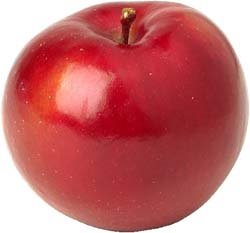Managing Diabetes Without Pharmaceuticals
Becky Gallops
Diabetes is a growing problem in the United States and it is becoming more prevalent as record numbers of citizens are becoming overweight, a major contributing factor to diabetes.Type 1 diabetes is an autoimmune disorder in which the pancreas fails to produce sufficient amounts of insulin, resulting in the inability of the body to process glucose. Type 1 diabetics are insulin dependent and require daily insulin injections.
Type 2 diabetes generally occurs in people over age 40 and is often associated with obesity and occasionally pregnancy. Type 2 diabetes can often be controlled with diet and exercise, or oral medications.
Managing blood glucose levels is critical to ensure that good health is maintained, and that complications do not arise. The complications of diabetes are varied and can be serious. Diabetic neuropathy, circulation problems, high blood pressure, heart disease, wounds that will not heal, and even blindness can all be caused by diabetes.
Many people want to avoid using pharmaceuticals to treat their diabetes. There are several natural items that can help keep blood glucose levels low in conjunction with diet, exercise, and medication if your doctor has prescribed it.
Just a spoonful of cinnamon can help the blood sugar go down. Recent scientific studies have shown that adding just a half-teaspoon per day of cinnamon to your diet can significantly reduce blood sugar levels in diabetics. This can be achieved by something as simple as letting a cinnamon stick steep in a cup of tea, or sprinkling cinnamon on a bowl of oatmeal. Cinnamon bark extract is a liquid form that can be added to drinks and is available in most health food stores.
You may not want to start your meal on a sour note, but some scientific studies have shown that a small amount of apple cider vinegar added to a glass of water, and drunk before a high carbohydrate meal can keep blood glucose levels in check. It is thought that the acetic acid in the vinegar has an effect on the body's glucose levels. Although there are not enough studies to prove definitively that apple cider vinegar is a help with diabetes, it is a relatively innocuous product and it is doubtful that it would do any harm to anyone trying it.
A plain looking little plant with red fruit has been shown to make a big difference in the world of diabetes. American ginseng is a perennial herb grown mainly (and ironically) in the Canadian provinces of Ontario and British Columbia. In the April 9, 2000 Journal of the American Medical Association (JAMA), a study was cited that showed that taking American ginseng before a meal can reduce blood sugar in people with and without diabetes.
A diet that contains too few micronutrients is considered to be one of the causes of the increase in diabetics. Chromium is one of theses micronutrients, and has the greatest impact on insulin response. If you suffer from diabetes, doctors recommend taking from 200-300 mcg of a chromium picolinate supplement two to three times daily. However, if you have cardiovascular disease, the recommended dosage is 200 mcg two to three times a day.
Zinc is another mineral that diabetics may be lacking. It plays a crucial role in insulin production and helps muscles and fat cells utilize glucose. There have been some recent studies that have suggested that it might help lower the chance of heart disease in people with diabetes. Since taking zinc supplements can upset your system, it is best to try to get your zinc from food. Zinc is found in red meat, poultry, whole grains, legumes, and nuts.
A diabetic must be responsible for ensuring that their blood glucose levels stay stable and within normal range. Using some or all of the five things that have been mentioned in this article may just be the way to do it.
About the Author
I am a student at Cameron University in Lawton, OK, majoring in journalism.




No comments:
Post a Comment